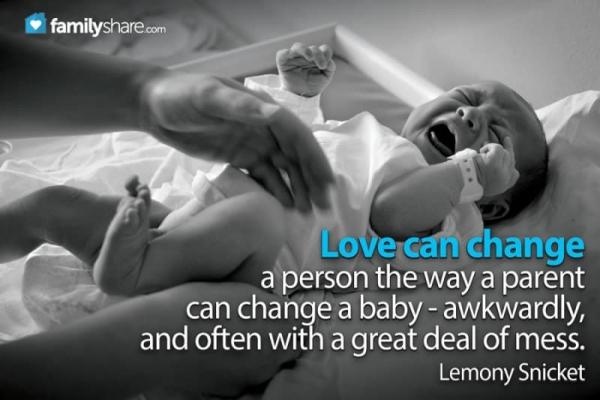
Bringing home a new baby can be a blissful experience, but it is a very difficult experience as well. Even without considering extenuating circumstances (post-partum depression, lack of a partner to share the workload, etc.) the first few weeks post-baby can look a lot less like heaven and a lot more like ... someplace else.
Here are a few secrets nobody thought to tell you about those first few harrowing weeks after bringing your new bundle of joy home:
Your helpers won't actually help unless you ask them to
. Your home will likely be a hub of activity if you let it. Friends and family will drop by to visit you and the baby, often under the guise of helping out. Here's the secret: They all will want to hold the baby. Here's the other secret: You'll feel guilty asking them to do anything else. However, if you give in to that feeling of guilt, you'll begin to resent your friends and family. You'll be more exhausted, and you'll be missing out on the opportunity to bond with your baby. Be polite but firm, "Thanks, Aunt Jean, for coming over. I could really use some help in the kitchen today. Little baby Bobby just wants to be held all day long, and I haven't even thought about dinner yet!"� People do want to help, but without direct instruction, they'll gladly sit on the couch with you. Make use of their proffered help, it will save you time, energy and give you extra snuggle time with your new baby.
Those post-birth bliss hormones wear off - quickly
Immediately after giving birth, your body surges with oxytocin, a hormone that is often referred to as "the hormone of love,"� making you feel blissfully in love with your baby. Within a week, though, your hormone levels (not just oxytocin, but estrogen, too) will drop to unprecedented lows. You'll feel like a lesser version of yourself - the opposite of the powerful feeling most women report during pregnancy. This is normal, even if it is disconcerting. Since your hormones won't perk you up, you'll have to be proactive and do it for yourself. Shower, do your hair, put some makeup and cute shoes on, and chase away those post-baby blahs.
It's easy to confuse the "blahs"� with genuine depression
. Be sure your friends and your partner are aware of the signs of post-partum depression and keep an open line of communication. If you are feeling worse than "blah,"� or if the feeling is constant, talk with your doctor and get the help you need.
Commiserate
. If you have friends or sisters who have recently had babies of their own, talk with them. Listen to their stories of sleepless nights and diaper explosions and nursing nightmares. Let them share, laugh in retrospect and listen to their advice. You are not the first woman to bring home a confusing, albeit wonderful, baby. Learn from others and recognize that they still love their children, despite the difficulties they had at the beginning.
If you think something is wrong, ask a doctor
. Don't ask your friends (unless they are obstetricians or pediatricians), don't ask your mom and for heaven's sake, don't ask the Internet. Your friends and your mother mean well, but they aren't professionals trained to diagnose a problem or suggest a course of action. In all likelihood, they'll just share horror stories with you. The Internet is full of nothing but horror stories about post-baby problems. Most problems are not horrors, but easily fixed common ailments. It's best to consult your doctor or midwife if you have concerns about what is happening with your baby or your body.
Bringing home a new baby can be wonderful, but instead of perpetual bliss, it is still real life - just with a baby involved. It is possible to keep your wits about you and enjoy the experience of being a first-time parent.

